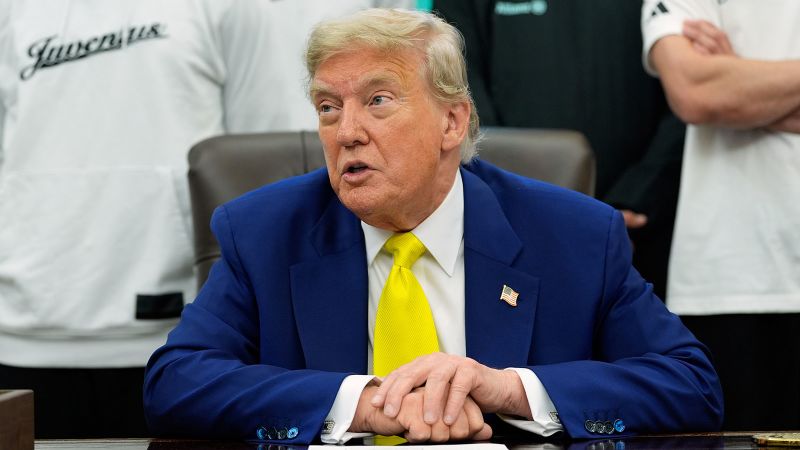The situation surrounding the potential U.S. military involvement in Israel’s strikes on Iran has taken center stage as President Donald Trump weighs his options. As reports indicate that Israel is engaging in operations targeting Iran’s nuclear facilities, including deep-seated sites requiring bunker-buster bombs, discussions among Trump’s top advisors reveal a delicate balance between action and caution. Officials are contemplating how to strike critical Iranian targets without triggering a full-scale war, a prospect that many in the administration and military are keen to avoid.
President Trump is acutely aware of the consequences of an escalated conflict. Consulting closely with allies, including Israeli Prime Minister Benjamin Netanyahu, he has emphasized the importance of decisive action to curb Iran’s nuclear ambitions, yet he remains deeply hesitant about entangling the U.S. in a prolonged military engagement. This precarious position highlights a divergence between the demands for action from some officials and the imperative to avoid another foreign war — a key theme of Trump’s campaign.
Meanwhile, the Trump administration’s strategy appears to be one of patience. There are indications that the U.S. intends to observe the outcomes of Israel’s initial push against Iran’s nuclear capabilities before committing American military assets to the conflict. This measured approach reflects Trump’s instinct to keep his options open, as he prefers to make decisions at the last possible moment, especially in matters of war where dynamics can shift rapidly.
Trump’s comments in the Oval Office encapsulate his strategic mindset regarding military engagement, emphasizing the unpredictability of wartime scenarios. As he contemplates U.S. involvement, he expresses an understanding that attacking Iran may not mean a full-scale intervention. His advisors, like David Friedman, the former U.S. ambassador to Israel, propose that targeted strikes on specific locations could be sufficient to accomplish U.S. goals without further escalation.
However, with new developments arise caution. Allies of the U.S. worry about potential Iranian retaliation, which could threaten vital regions like the Strait of Hormuz and destabilize global oil supplies. Iran’s leadership has made it clear that any military involvement from the U.S. would provoke a strong response, marking the seriousness of the stakes involved. Statements from Iranian officials warn of retaliatory actions against U.S. forces, further complicating the decision-making calculus for Trump and his advisors.
Strategically, Trump’s cohort appears to consider models of action rooted in previous incidents. For instance, they reference the 2020 drone strike that killed Qasem Soleimani, a decision that escalated tensions considerably but did not lead to an all-out war. This historical context guides current discussions on how to navigate a potential strike against Iran while managing consequences.
As Trump continues to deliberate, his administration’s national security officials, including CIA director John Ratcliffe and Army General Michael Kurilla, are advocating for preparedness in the U.S. military’s posture in the region. This is further emphasized in requests for enhanced military capabilities to support Israel amidst its operations against Iranian targets.
The interplay of military readiness, the leverage of diplomatic alliances, and the overarching goal of preventing Iran from acquiring nuclear weapons underscore a complex landscape for Trump. While he expresses resolve that “Iran cannot have a nuclear weapon,” the challenge lies in achieving this goal without igniting a broader conflagration.
The concerns about the risks of strike action have been articulated by various experts and lawmakers who warn that any offensive against Iran could spiral into sustained conflict, with severe implications for U.S. lives and resources. Criticism of possible military engagement is coming from both sides of the political aisle, indicating a consensus on the need for moderation in military involvements.
While Trump navigates this treacherous terrain, he remains staunchly focused on preventing Iran’s nuclear advancement. His remarks reveal a laser-like focus on this singular objective, while simultaneously maintaining his stance against committing the U.S. to protracted warfare. In doing so, he hopes to uphold his promises to his base while responding effectively to international dynamics that could alter the balance in the Middle East dramatically.



